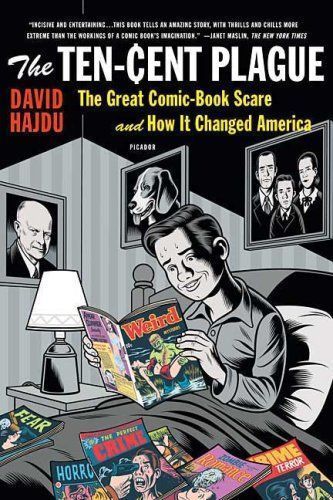
Whoa, just saw Archie dropped the Comics Code Authority seal at the beginning of this year (yeah, I’m pretty late with this one):
With time the moral panic subsided, the rules softened, and a new wave of adult-oriented titles appeared. In 2001 Marvel Comics adopted its own rating system and dropped the code altogether. In January 2011 the other major comic book publisher, DC, did the same thing. And a day after DC’s decision, Archie Comics followed suit.
Reason: The Comics Code Goes Cold
And last month the Comic Book Legal Defense fund acquired the Code’s intellectual property:
The Comic Book Legal Defense Fund today announces that it has received the intellectual property rights to the Comics Code Authority Seal of Approval in an assignment from the now-defunct Comic Magazine Association of America, which administrated the Code since the 1950s.
The Comics Code Seal comes to the CBLDF during Banned Books Week, a national celebration of the freedom to read, and just a few months following a decision in the U.S. Supreme Court where Justice Scalia cited CBLDF’s brief addressing the comics industry’s history of government scrutiny and the subsequent self-regulation the Comics Code represented. Dr. Amy Nyberg, author of Seal of Approval: The History of Comics Code has prepared a short history of the Comics Code Seal and the era of censorship it represents exclusively for CBLDF that is available now in the Resources section of cbldf.org.
CBLDF Receives Comics Code Authority Seal of Approval
See also:
The Ten-Cent Plague: The Great Comic-Book Scare and How It Changed America by David Hajdu.
The New Yorker’s lengthy coverage of the above book.
Online text of Seducing the Innocent (with different illustrations from the original print version).